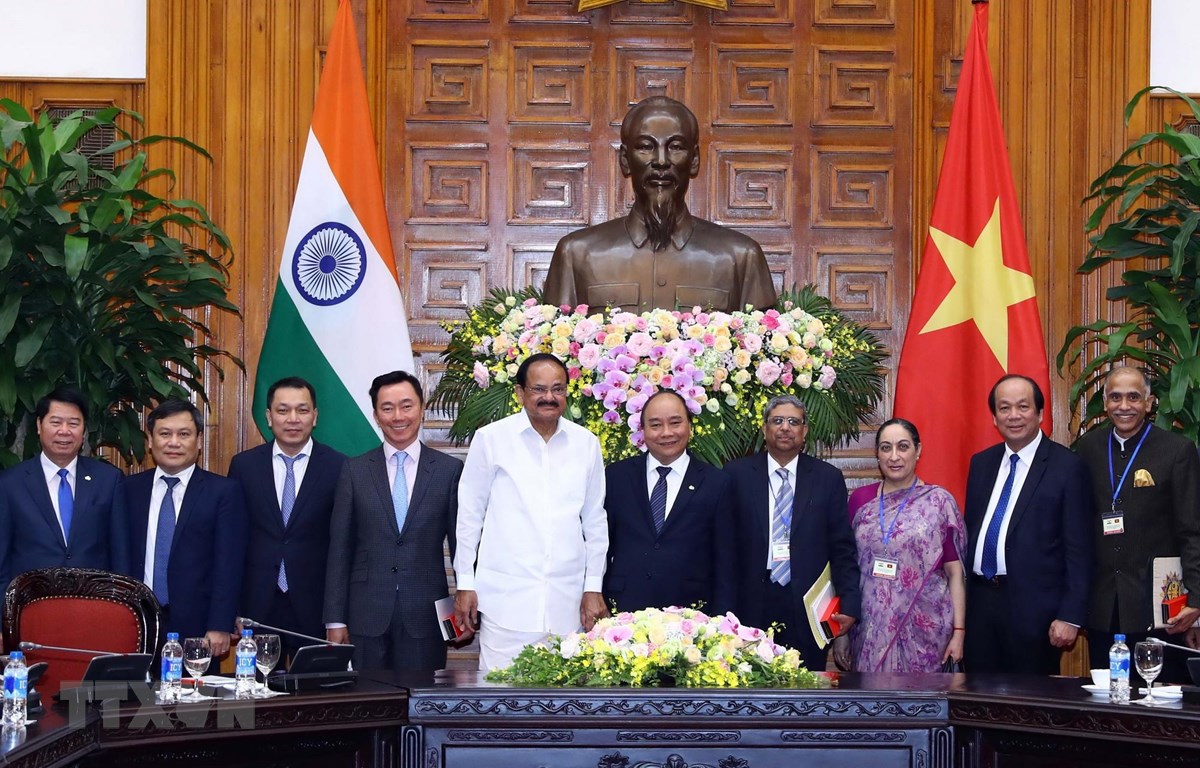PM Phuc meets Indian Vice President
VGP – Viet Nam and India will continue to regard economic and trade cooperation as an important pillar in the bilateral ties, striving for US$ 15 billion two-way trade turnover in the coming time.
 |
|
PM Nguyen Xuan Phuc (5th) at the reception for Indian Vice President Venkaiah Naidu, who is also Chairman of the Rajya Sabha (Upper House) of the Parliament of India |
PM Nguyen Xuan Phuc hosted a reception for Indian Vice President Venkaiah Naidu, who is also Chairman of the Rajya Sabha (Upper House) of the Parliament of India, in Ha Noi last week.
PM Phuc hoped that the visit would contribute to maintaining high political trust and boosting collaboration in all aspects between the two countries.
The two leaders said that economic and trade cooperation remains a pillar in bilateral relations and agreed to lift the two-way trade value turnover to US$15 billion in the time to come.
They considered the opening of the Indian market for Viet Nam’s longan, grapefruit, rambutan and durian, and allowing India’s pomegranate, grapes and millet to enter the Vietnamese market.
The leaders underlined the necessi
The leaders pledged to create favorable conditions for Vietjet, Indigo and other airlines to soon launch direct air routes connecting the two nations.
Both sides exchanged opinions on regional and international issues of mutual concern and agreed to maintain close coordination and mutual support at regional and international forums, particularly within the framework of the United Nations.
Regarding the East Sea issue, both leaders agreed upon the importance of peace, stability, and safety, security and freedom of aviation and navigation, and settlement of disputes through peaceful measures, respecting international law, including the 1982 UN Convention on the Law of the Sea (UNCLOS), and completing an effective Code of Conduct (COC) in the East Sea./.
By Kim Anh
